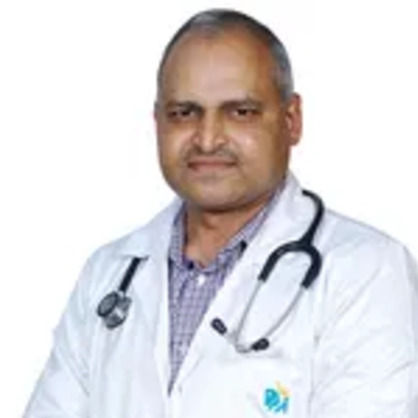HIV: Causes, Symptoms, and Prevention
Learn about HIV: its causes, early and late-stage symptoms, and effective prevention methods. Understand how early testing and treatment can help you live a healthy life.


HIV (Human Immunodeficiency Virus) is a virus that attacks the body's immune system, specifically the CD4 cells (T cells), which help the immune system fight infections. If left untreated, HIV can lead to AIDS (Acquired Immunodeficiency Syndrome), a more severe stage where the immune system is badly damaged.
The good news is that with early diagnosis and proper treatment, people with HIV can live long, healthy lives. This article explains the causes, symptoms, and prevention of HIV in simple terms to help you stay informed and take the right steps for your health.
What Causes HIV?
HIV spreads through certain body fluids that carry the virus. The most common ways HIV is transmitted include:
1. Unprotected Sex – Having vaginal, anal, or oral sex without a condom with an HIV-positive person can transmit the virus.
2. Sharing Needles – Using contaminated needles or syringes (for drugs, tattoos, or medical injections) can spread HIV.
3. Mother-to-Child Transmission – An HIV-positive mother can pass the virus to her baby during pregnancy, childbirth, or breastfeeding.
4. Blood Transfusions or Organ Transplants – Though rare today due to strict screening, receiving infected blood or organs can transmit HIV.
HIV does NOT spread through:
- Casual contact like hugging, shaking hands, or sharing food.
- Mosquito bites.
- Saliva, tears, or sweat (unless mixed with blood).
Symptoms of HIV
HIV symptoms vary depending on the stage of infection:
1. Early Stage (Acute HIV Infection – 2-4 weeks after exposure)
- Fever
- Fatigue
- Swollen lymph nodes
- Sore throat
- Rash
- Muscle and joint pain
- Night sweats
These flu-like symptoms may last a few weeks. Many people mistake them for a common illness, so getting tested is crucial if you suspect exposure.
2. Clinical Latency Stage (Chronic HIV – Can last years without treatment)
- No symptoms or mild symptoms
- The virus is still active but reproduces at low levels
- Without treatment, HIV progresses to AIDS
3. AIDS (Advanced Stage)
- Rapid weight loss
- Extreme fatigue
- Recurring fever or night sweats
- Prolonged diarrhoea
- Sores in the mouth or genitals
- Pneumonia
- Memory loss or neurological disorders
At this stage, the immune system is severely damaged, making the body vulnerable to life-threatening infections and cancers.
Consult a Top Physician For More Health Benefits
How to Prevent HIV
Preventing HIV involves safe practices and awareness. Here are some key steps:
1. Practice Safe Sex
- Always use condoms correctly during sex.
- Get tested regularly if you have multiple partners.
- Consider PrEP (Pre-Exposure Prophylaxis) – a daily pill that reduces HIV risk for high-risk individuals.
2. Avoid Sharing Needles
- Never share needles, syringes, or other injection equipment.
- Use sterile needles from trusted sources.
3. Get Tested & Treated Early
- Early diagnosis helps manage HIV effectively.
- PEP (Post-Exposure Prophylaxis) – Emergency medicine taken within 72 hours of possible exposure to prevent infection.
4. Prevent Mother-to-Child Transmission
- Pregnant women should get tested for HIV.
- Antiretroviral therapy (ART) can prevent passing HIV to the baby.
5. Educate Yourself & Others
- Knowing how HIV spreads helps reduce stigma and encourages safe behavior.
Living with HIV: Treatment & Management
While there’s no cure for HIV yet, antiretroviral therapy (ART) can control the virus and prevent AIDS. People on ART can live long, healthy lives and reduce the risk of transmitting HIV to others.
Key Tips for Managing HIV:
Take medications as prescribed – Skipping doses can make the virus resistant to treatment.
Regular doctor visits – Monitoring CD4 count and viral load helps track progress.
Healthy lifestyle – Eat nutritious food, exercise, and avoid smoking/alcohol.
Mental health support – Living with HIV can be stressful; counseling helps.
When to Get Tested?
If you think you’ve been exposed to HIV, get tested immediately. Early detection saves lives.
You can book an HIV test easily on Apollo 24|7. Our confidential testing ensures quick and accurate results so you can take the right steps for your health.
Conclusion
HIV is a serious but manageable condition. By understanding how it spreads, recognizing symptoms, and taking preventive measures, you can protect yourself and others. If you or someone you know is at risk, getting tested is the best step forward.
Remember, with proper treatment, people with HIV can lead fulfilling lives. Stay informed, stay safe, and don’t hesitate to seek medical advice.
Consult a Top Physician For More Health Benefits
Consult a Top Physician For More Health Benefits

Dr. Mohamed Azeem
General Physician/ Internal Medicine Specialist
2 Years • MBBS,MD(Internal Medicine) CCEBDM
Karaikudi
Apollo Hospitals Karaikudi, Karaikudi

Dr Bhargav Vuppumalla
General Physician/ Internal Medicine Specialist
5 Years • MBBS MD GENERAL MEDICINE
Bengaluru
Apollo Medical Center, Marathahalli, Bengaluru
Dr P Sai Avinash
General Physician/ Internal Medicine Specialist
5 Years • MBBS
Bengaluru
Apollo Medical Center, Marathahalli, Bengaluru

Dr Syed Mateen Pasha
General Physician
2 Years • MBBS
Bengaluru
PRESTIGE SHANTHINIKETAN - SOCIETY CLINIC, Bengaluru

Dr. Dhanraj K
General Physician/ Internal Medicine Specialist
25 Years • MBBS, MD Internal Medicine - Osmania Medical College, Hyderabad
Hyderabad
Apollo Hospitals Jubilee Hills, Hyderabad
(375+ Patients)




